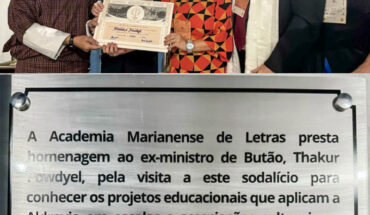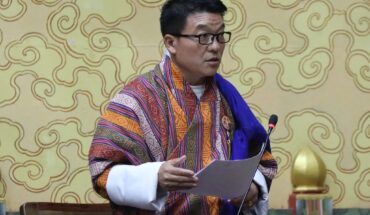
The quiet burden of Bhutanese students trying to eke out a living in Australian metropolises
KINZANG DORJI TSHERING
Thimphu
Australia remains a dream destination for many Bhutanese students—a land of opportunity, world-class education, and the promise of a better life. But behind the excitement of arrival lies a much harder truth.
Many Bhutanese students face silent hardships, emotional struggles, and day-to-day survival challenges that few people back home truly understand.
“Most of us arrive with hope and nothing else,” a student shares.
In the beginning, many depend heavily on friends or relatives already living in Australia for food and accommodation. While this support is appreciated, it often creates discomfort or tension, and in many cases, leads to broken relationships.
One of the first major challenges is housing. Rent is extremely expensive—AUD 180 to 350 per week for a shared room, and AUD 450 to 550 per week for a basic family unit.
New arrivals are often unable to secure rentals because they lack local rental history or references. As a result, many end up in cramped, shared houses—sometimes with three or more couples sharing the same space.
While food is more manageable, the absence of familiar ingredients and
traditional dishes from Bhutan creates a quiet emotional gap. Most Bhutanese students cook their own meals, but even home-cooked food cannot always fill the void of what’s left behind.
Employment opportunities are another uphill battle. International students are permitted to work only 24 hours per week, which barely covers rent and groceries. Tuition fees and other expenses often feel overwhelming.
For those who come alone without a partner, life becomes painfully difficult—some fall into dire situations, barely able to survive.
“My honest advice to anyone back home planning to come to Australia is this: do not come alone unless you’re truly prepared for hardship,” the student, requesting anonymity, said.
The jobs most readily available to Bhutanese students are blue-collar roles—cleaning, warehouse work, retail, aged care, and shelf-stocking. The hours are gruelling, with night shifts from 10 PM to 8 AM becoming routine.
Many have been forced to shift their entire routine—working through the night and sleeping during the day. Even spouses struggle to see each other, let alone maintain friendships or a social life.
Elderly-care is one of the more stable job options. Many Bhutanese works as nursing assistants—bathing residents, cleaning nappies, feeding them, and providing emotional support. Though physically and emotionally draining, the job offers better pay than most other part-time roles.
Unfortunately, even qualified professionals from Bhutan—including nurses, doctors, engineers, architects, and IT professionals—are not recognised unless they re-qualify in Australia. Many end up working in factories or as cleaners just to survive.
Driving, something taken for granted in Bhutan, becomes another unexpected hurdle. Despite years of experience back home, Bhutanese drivers often struggle with Australia’s multi-lane traffic, unfamiliar signage, and strict road rules.
The emotional toll is significant. Homesickness is most intense in the first few months. Students miss their children, elderly parents, festivals, monasteries, and peaceful routines.
“What we took for granted back home—like a simple picnic or visiting a temple—feels like a luxury here,” the student reflects. Social media, instead of easing the pain, can deepen the feeling of isolation as they watch family and friends enjoying life back home.
Some students witness their children grow up through a screen. Others suffer the heartbreak of losing a parent from afar—unable to serve them or even say goodbye. The emotional burden is often too heavy to bear, yet returning home isn’t always an option.
Many also ask what they will do once they are back home. With limited job opportunities and short-lived savings, the decision to return must be carefully weighed against the sacrifices already made.
Academic life poses additional stress. Bhutanese students often find the Australian education system challenging—different teaching styles, high expectations, and a need for strong communication skills. Balancing this with part-time work leads to stress, anxiety, and burnout.
Visa restrictions and immigration policies add another layer of anxiety. Students constantly fear breaching the 24-hour work limit. Even though they pay for Overseas Student Health Cover (OSHC), medical treatment can be costly, and many students avoid seeking help due to out-of-pocket expenses.
Adapting to Australia goes beyond language and transport. It requires learning social cues, adjusting to a new way of life, and surviving in a system that can feel indifferent to the realities of international students.
In light of these experiences, the student believes Bhutan must take action.
Many say what Bhutan truly needs is a better pre-departure orientation that prepares students not just academically, but realistically—with clear, honest information about cost of living, job struggles, housing, emotional challenges, and rights.
Furthermore, education consultancies, they argue, have a duty to stop selling dreams and start presenting facts.
At the same time, there is a call for Australia to recognise international students—Bhutanese included—as more than fee-paying guests.
“We are workers, carers, contributors, and part of the wider community. We deserve stronger support systems, clearer guidance, and greater protection—not just in words, but in practice.”
Despite the hardships, students still hold onto hope. But, as the student concludes, “That hope now walks beside sacrifice, hard work, and silent endurance.”
Compared to Bhutan, the pay in Australia is significantly better. Workers are typically paid weekly or fortnightly. The minimum hourly rate heard of is AUD $22, but most earn between $25 and $32. Higher wages apply for overtime, weekends, and public holidays.





